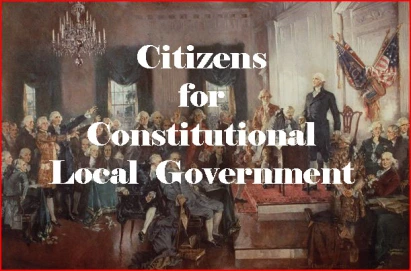In her 44-page OK Univ. Law Review “Note” (2022) the author, Saige Culbertson, concentrates on the questions of agency relationships and duty of care. However, in order to discuss the question of agency relationships, Culbertson addressed many of the issues still causing problems in HOA-Land including the status of HOAs as quasi-governments, the validity of the CC&Rs “contract,” and the reality of maintaining property values.
With respect to agreeing to be bound, the author maintains in regard to the individual homeowner subject to the CC&Rs, that
- “HOAs use these contracts as a basis for their decision making because courts often presume the homeowners have a full understanding of their HOA’s obligations, because they have the duty to examine their contract for real property. The typical HOA contract is overly generalized and broad.
- “When buying a home, a homeowner does not often have the option to not join. Homeowners also have little-to-no choice of which actions the HOA may take on their behalf, or, crucially, any actions taken by the HOA for any purpose.
- “However, the lack of mutual assent is constant throughout the relationship with the HOA. At the beginning, the homeowner might not have agreed to a relationship with the HOA, and those who have agreed might not have a full understanding of the rules of the HOA.
- “[S]ome courts and scholars argue that HOA contracts are a form of adhesion contracts. Adhesion contracts are exclusively pre-determined by a single party and are presented as “take it or leave it,” while the non-drafting party has no room to negotiate.”
With respect maintaining property values, Culbertson is concerned about “The Fictional Purpose of a Homeowners’ Association,”
- “The Community Association Institute recently reported 71% of individuals believed their community association rules ‘protect and enhance property values.’ While this belief may have been true in 2005, more recent research indicates otherwise.
- “[A] study found that “[p]roperties located in HOAs do not appreciate faster, on average, than properties not located in any type of neighborhood government”
and cites this study by Robertson,
- “[A] 2021 study conducted by former Yale Professor Leon S. Robertson found that “[c]urrent sales price[s] [are] related to property characteristics and local market conditions[,]” and that “sales prices do not reflect the efficacy of homeowners associations to protect property values.
- “Robertson remarked that “[s]tate and local laws that sanction homeowners associations and allow their coercive practices based on the premise of property value preservation are ill founded.”
With respect to quasi or local government, the author favors making “HOAs part of local government, founded in democratic ideals, and with regulation by the state or municipality,”
- “The nature and purpose of the HOA are so closely linked to that of local government that . . . clearly give rise to a special sense of responsibility . . . . This special responsibility is manifested in the . . . requirements of due process, equal protection, and fair dealing. The severity of the risks associated with the substantial overreach by HOAs is further shown by actions depriving individuals of their basic rights.
- “[U]pon analysis of the association’s functions, one clearly sees the association as a quasi-government entity paralleling in almost every case the powers, duties, and responsibilities of a municipal government. As a “mini-government,” the association provides to its members . . . . [citing Cohen v. Kite Hill Cmty. Ass’n, 142 Cal. App. 3d 642].
- “The lack of checks and balances on HOA actions is a national problem and homeowners are often left with no remedy for violations of their rights. The need for regulation of HOA activities, and further federal protections for individuals, is especially apparent . . . .
- “[H]omeowners should urge their local government to increase regulations on HOAs to protect their fundamental rights as Americans. States should therefore pass legislation to make HOAs part of local government, founded in democratic ideals, and with regulation by the state or municipality.”
Source: OK Univ. Law Review (PDF download).
